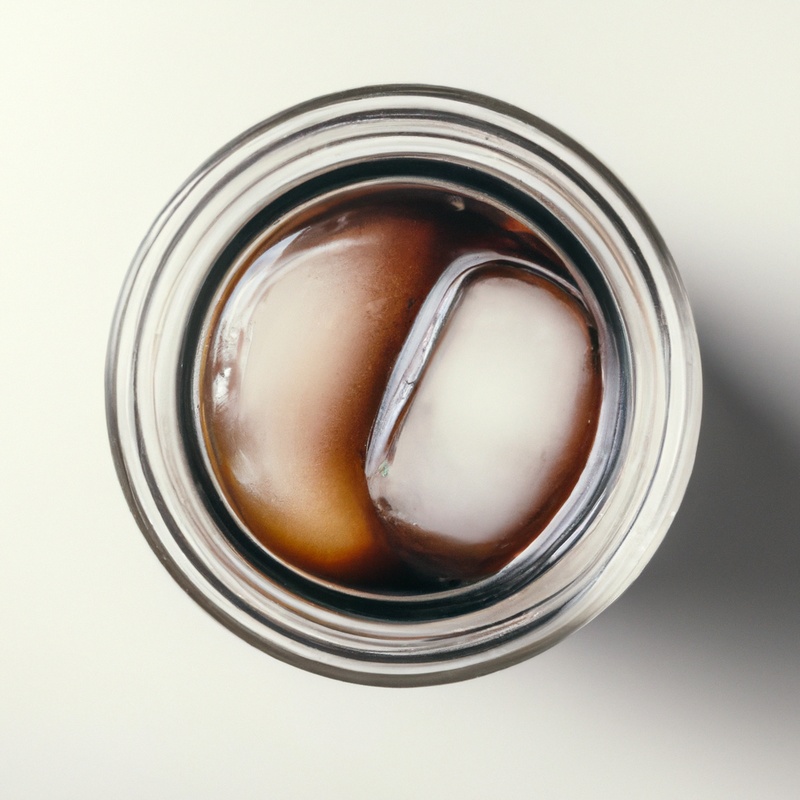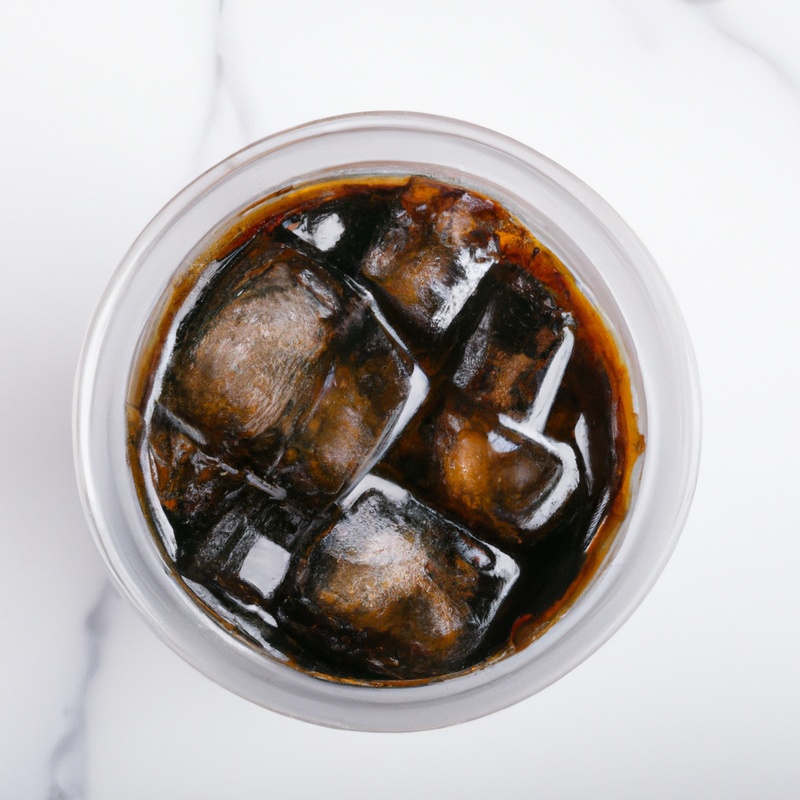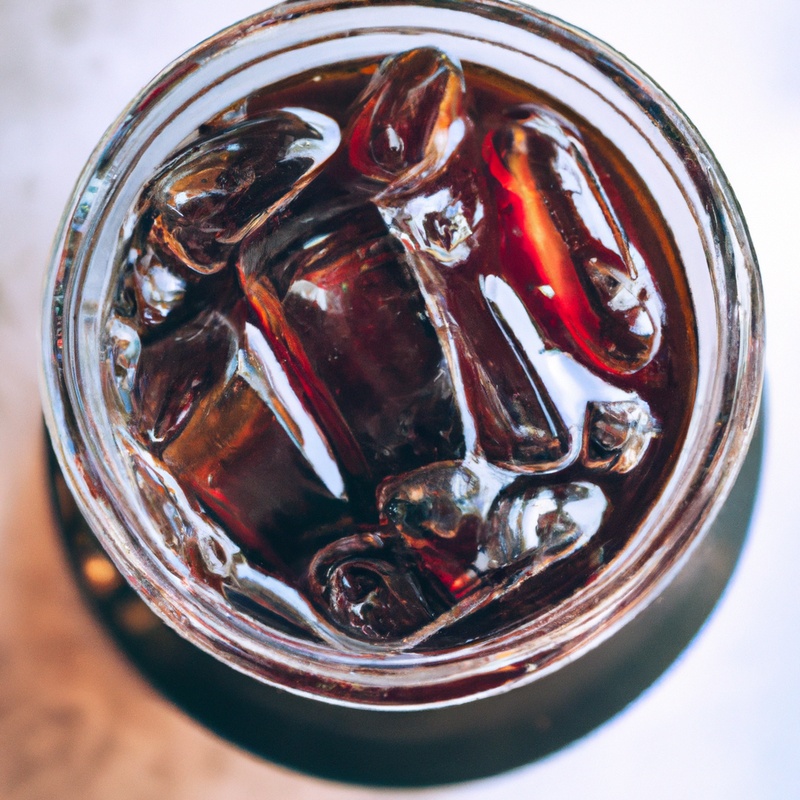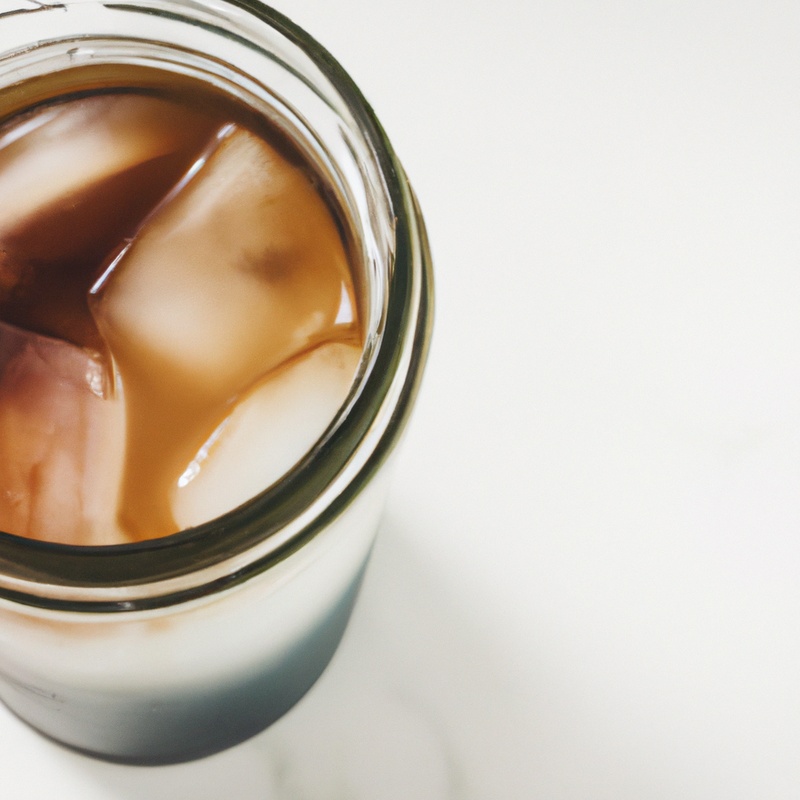Key Takeaways:
- Cold brew coffee can last up to two weeks when stored in the refrigerator.
- Proper storage in an airtight container is crucial for maintaining the flavor and quality of cold brew coffee.
- The taste of cold brew coffee may change slightly over time, but it should still be safe to consume.
- Always use your senses to determine if cold brew coffee is still good, as expiration dates may vary.
Are you a fan of that smooth, refreshing taste of cold brew coffee? You’re not alone! But here’s the question: How long can you keep that delicious brew in the fridge before it goes bad?
Whether you’re a cold brew connoisseur or a newbie looking to try it out, knowing how long your precious coffee will last is essential.
In this article, we’ll dive into the science behind the shelf life of cold brew coffee, exploring factors that affect its longevity and sharing some general guidelines for storing it in the fridge. Plus, we’ll answer some commonly asked questions about cold brew coffee, like whether you can still sip it if it’s been sitting in the fridge for too long.
Keep reading to become a cold brew storage expert!
| Duration | |
|---|---|
| Refrigerated Storage | Up to 2 weeks |
| Room Temperature Storage | Up to 12 hours |
How to make cold brew coffee
To make cold brew coffee, simply combine coffee grounds and water in a jar or container and let it steep in the fridge for 12-24 hours.
Different methods to make cold brew coffee
There are several different methods you can use to make cold brew coffee at home. One popular method is the immersion method, where you steep ground coffee in cold water for an extended period, usually around 12-24 hours.
Another option is the slow drip method, which involves slowly dripping cold water through a bed of coffee grounds over a period of several hours.
You can also try making cold brew coffee using a French press or a mason jar. Whichever method you choose, the result will be a smooth, low-acidity coffee concentrate that you can enjoy over ice or dilute with water or milk.

The basic recipe for making cold brew coffee
To make cold brew coffee, you’ll need coarsely ground coffee beans and cold water.
Start by combining 1 cup of coffee grounds with 4 cups of cold water in a jar or container.
Stir gently to ensure all the grounds are saturated.
Secure the lid or cover the container and let it steep in the refrigerator for 12-24 hours.
After steeping, strain the coffee using a fine mesh sieve or a coffee filter.
Now you have a concentrated cold brew coffee concentrate that you can dilute with water or milk according to your preference.
Storing cold brew coffee
To properly store cold brew coffee, refrigerate it or freeze it depending on your desired shelf life.
Refrigerating cold brew coffee
Refrigerating cold brew coffee is essential for maintaining its freshness and flavor. When storing your cold brew in the fridge, make sure to transfer it to an airtight container to prevent any odors or flavors from seeping in.
It’s best to consume your cold brew within 1-2 weeks for optimal taste.
If the coffee develops a sour or off-putting smell, it’s time to discard it. Enjoy your cold brew while it lasts!

Freezing cold brew coffee
If you want to freeze your cold brew coffee, it’s definitely possible. Just keep in mind a few things.
Firstly, make sure you cool the coffee completely before freezing it.
This will help preserve the flavor and prevent ice crystals from forming. Secondly, store the coffee in an airtight container or ice cube trays to avoid freezer burn.
Finally, when you’re ready to use it, let it thaw in the fridge overnight and give it a good shake before enjoying.
So, go ahead and freeze your cold brew coffee for later!
How long does cold brew coffee last in the fridge?
Cold brew coffee can last in the fridge for up to two weeks, if stored properly.
Factors affecting the shelf life of cold brew coffee
The factors that affect the shelf life of cold brew coffee are temperature, oxygen exposure, and storage container. Temperature plays a significant role, as cold brew coffee should be stored in the fridge to prevent bacterial growth.
Oxygen exposure can accelerate the oxidation process and affect the taste.
Using an airtight container can help maintain freshness. Properly stored, cold brew coffee can last up to two weeks in the fridge.
General guidelines for storing cold brew coffee in the fridge
Storing cold brew coffee in the fridge is an important step to maintain its freshness. Here are some general guidelines to follow:
- Use an airtight container: Keep your cold brew coffee in an airtight container to prevent air exposure and maintain its flavor for longer.
- Store in the back of the fridge: The back of the fridge is usually the coldest spot, which helps to preserve the freshness of the cold brew coffee.
- Avoid temperature fluctuations: Try to minimize temperature fluctuations by keeping the cold brew coffee away from the fridge door.
- Use within 1-2 weeks: While cold brew coffee can last for up to 2 weeks in the fridge, it is best to consume it within the first week for optimal freshness.

Signs of spoilage in cold brew coffee
How can you tell if your cold brew coffee has gone bad?
Here are some signs of spoilage to look out for:
- Off smell: If your cold brew coffee smells sour, rancid, or strange, it’s likely gone bad and should be discarded.
- Mold or slime: Visible mold or a slimy film on the surface of your cold brew indicates spoilage. This is a clear sign that it’s time to throw it away.
- Change in color or texture: If your cold brew coffee appears unusually dark or cloudy, or if it has a chunky or gritty texture, it’s probably spoiled and not safe to drink.
Remember, spoiled cold brew coffee can make you sick, so trust your senses and don’t hesitate to toss it out if you suspect it’s gone bad.
Frequently Asked Questions about cold brew coffee shelf life
How can I tell if my cold brew coffee has gone bad?
To tell if your cold brew coffee has gone bad, there are a few things to look out for. First, check for any unusual smells or flavors.
If it smells off or tastes sour or funky, it’s likely gone bad.
Second, look for any visible mold or slime in the coffee. If you see any, discard it immediately.
Lastly, consider the storage time.
If your cold brew has been sitting in the fridge for more than a week, it’s best to err on the side of caution and make a fresh batch. Trust your senses and prioritize safety when it comes to consuming your cold brew coffee.
Can I still drink cold brew coffee if it has been stored for too long?
Yes, you can still drink cold brew coffee if it has been stored for too long, but it may not taste as good as when it was fresh.
Cold brew coffee typically lasts for about 7-10 days in the fridge.
If it has been stored beyond that, it may start to taste stale or develop off flavors.
It’s always best to consume cold brew within its recommended shelf life for the best flavor and quality.
Can I reheat cold brew coffee?
Yes, you can reheat cold brew coffee if you prefer it hot.
However, keep in mind that reheating cold brew coffee may alter its flavor profile and make it taste slightly different from when it was freshly brewed.
To reheat, simply pour your cold brew coffee into a microwave-safe container and heat it in short intervals, stirring in between until it reaches your desired temperature.
Avoid overheating to prevent any unpleasant flavors.
Alternatively, you can also heat it on the stovetop in a small saucepan.
Final Verdict
The shelf life of cold brew coffee in the fridge depends on various factors such as the quality of the coffee beans, the brewing process, and the storage conditions. Generally, cold brew coffee can last for up to two weeks in the fridge if stored properly.
By following the basic recipe for making cold brew coffee and storing it in an airtight container in the refrigerator, you can extend its freshness and enjoy it for longer.
It is important to note the signs of spoilage in cold brew coffee and discard it if you notice any off-putting odors or tastes. Ultimately, the key to maximizing the shelf life of your cold brew coffee is to ensure proper storage and quality ingredients.
